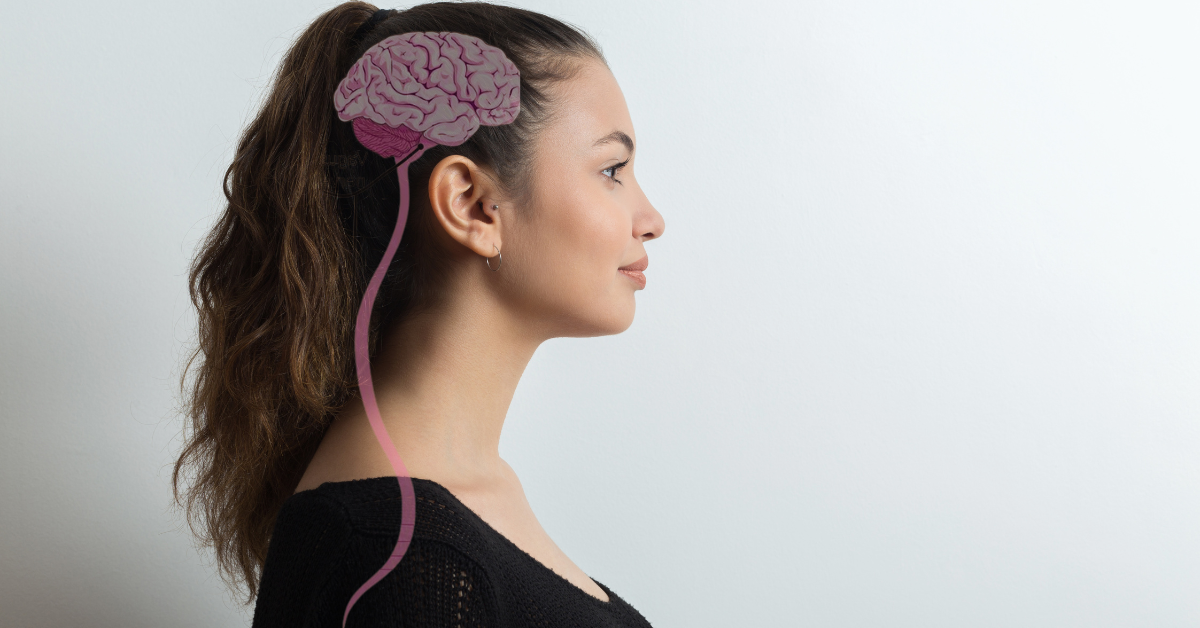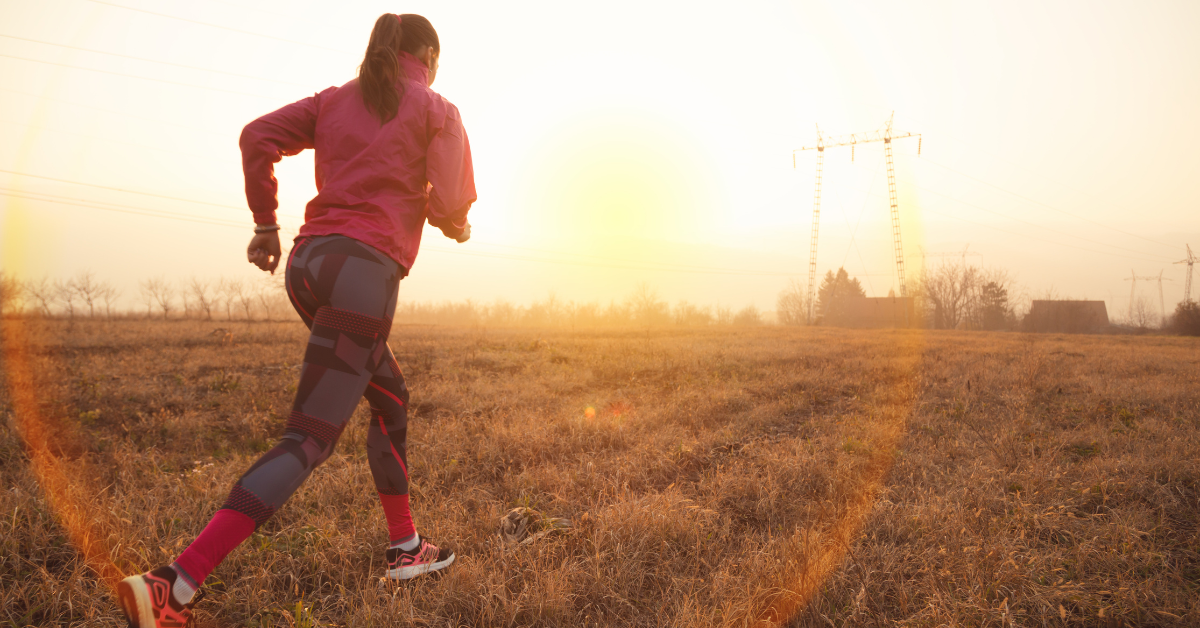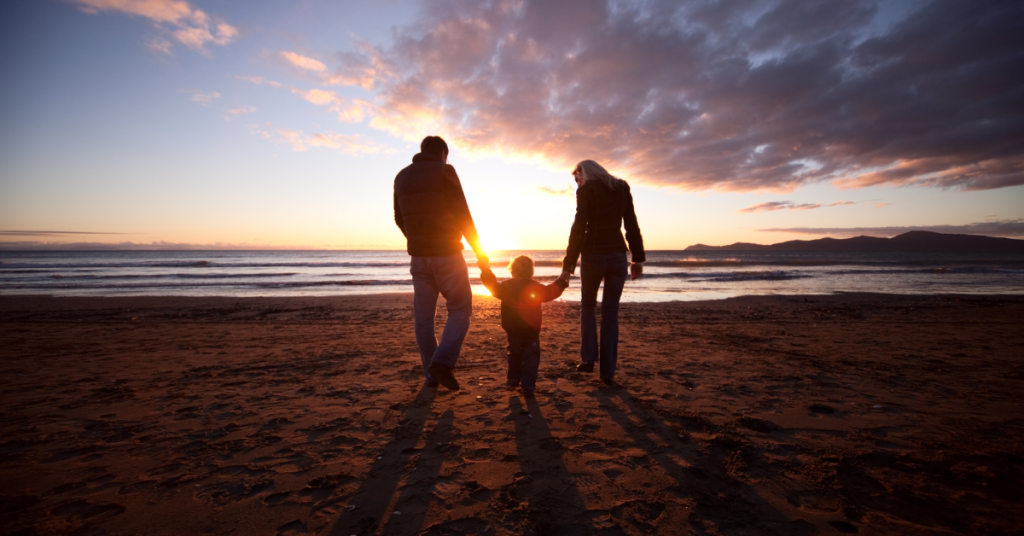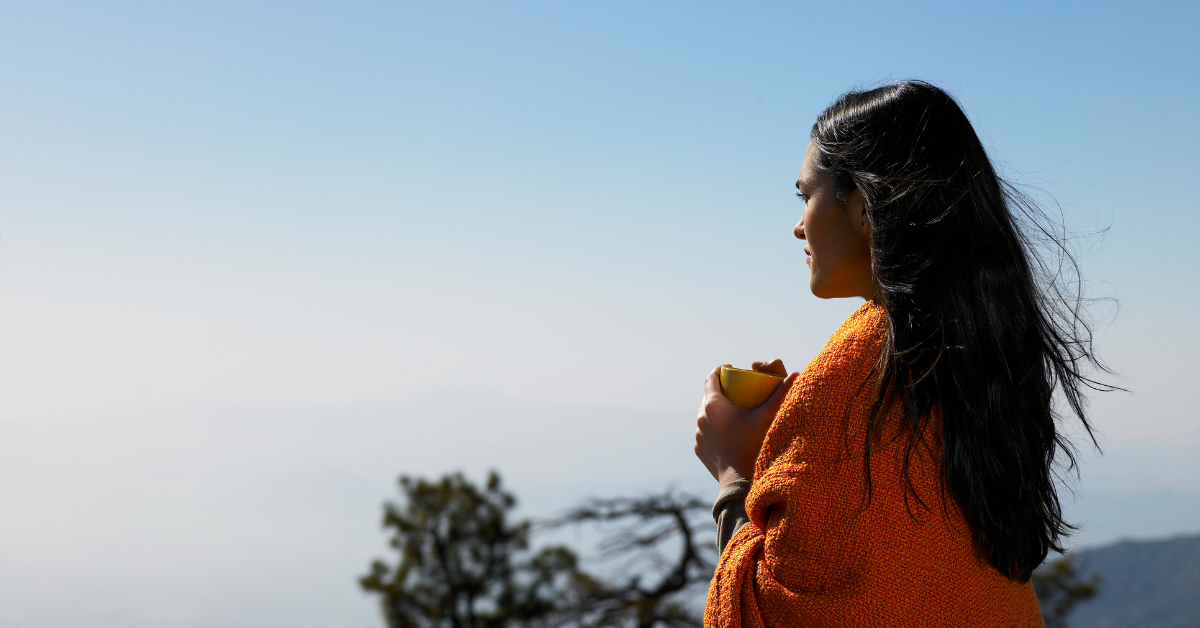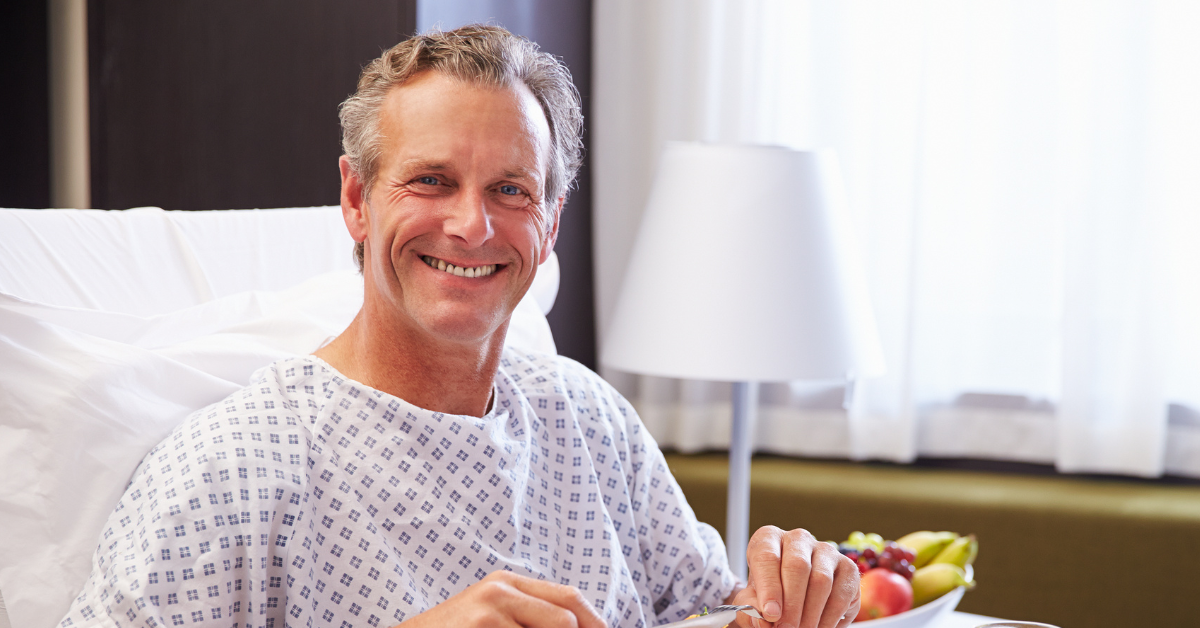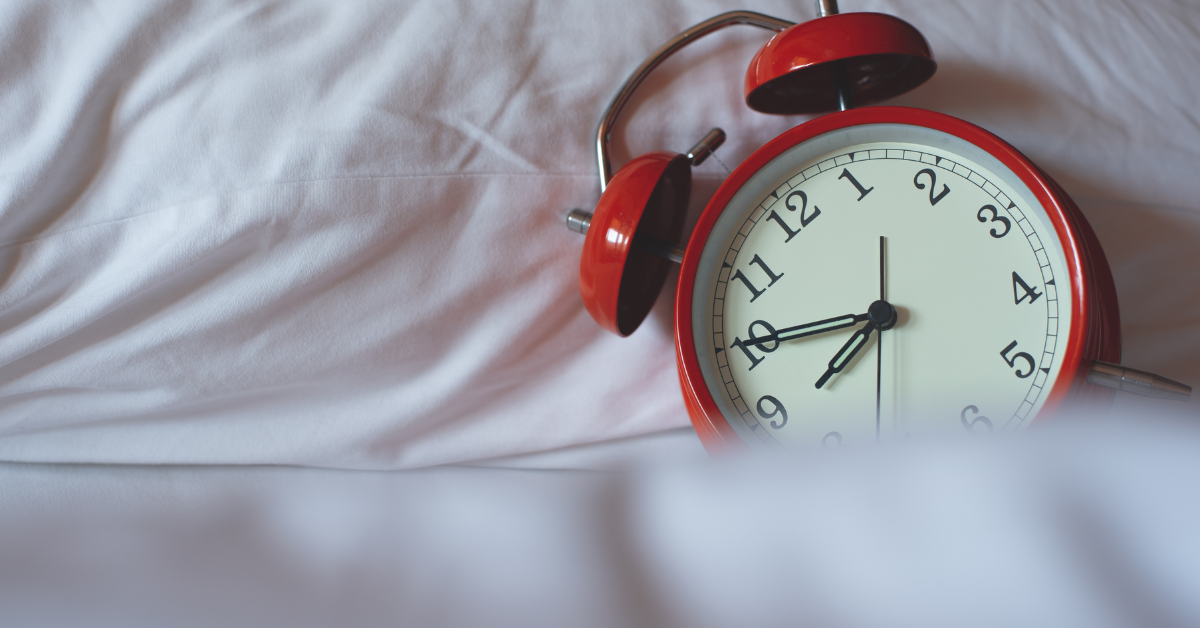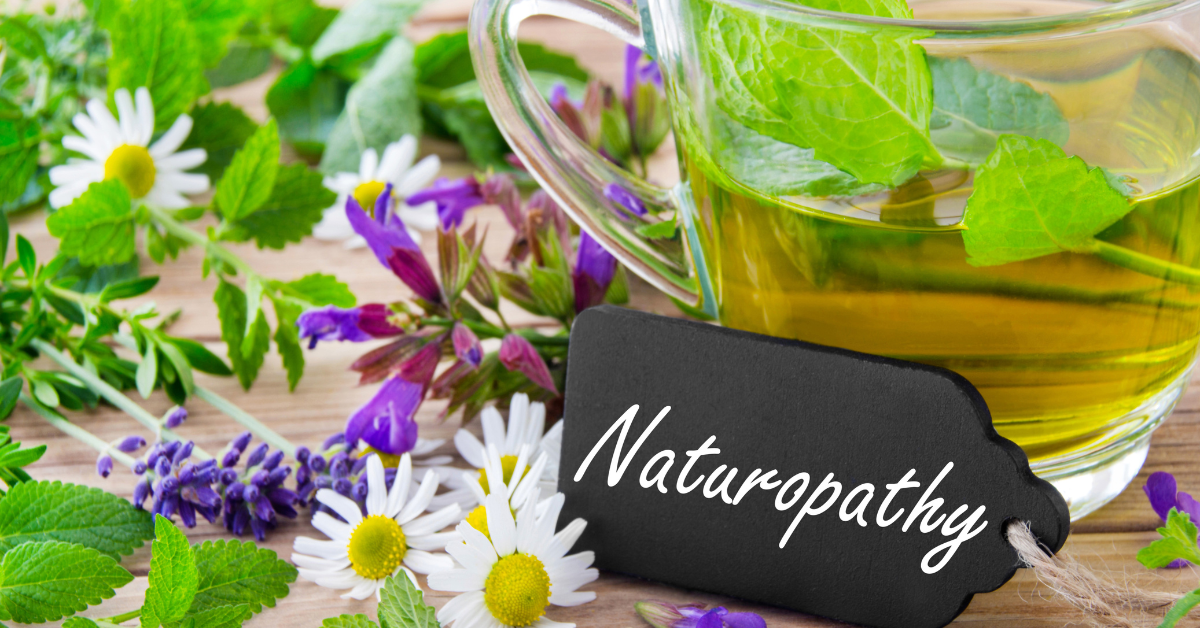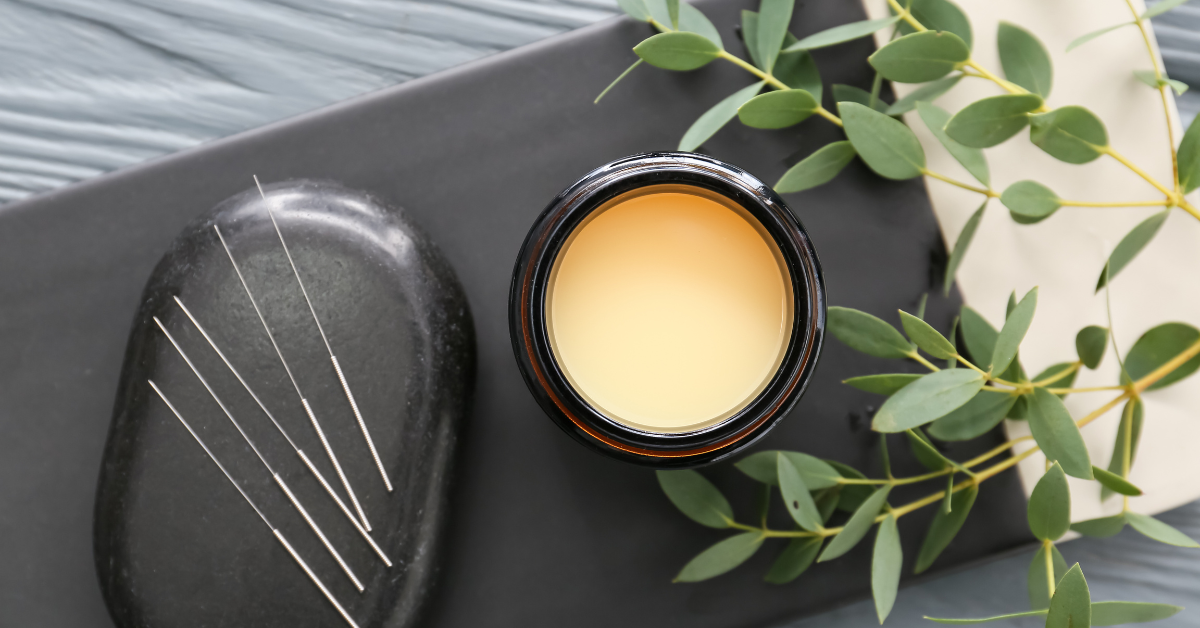114. Vagal Nerve Stimulation for Anxiety with Dr. Hool
In this episode, Carrie interviews Dr. Nicholas Hool about his personal struggle with anxiety and how it led to the development of VeRelief™.
Episode Highlights:
- How vagal nerve stimulation works and its effectiveness in relieving stress and anxiety.
- Why VeRelief is a good option for managing anxiety
- The evolution of the VeRelief product line, from its initial design to the upcoming third generation.
- The differences between VeRelief and other anxiety relief devices on the market.
Explore VeRelief through our affiliate link.
Episode Summary:
Welcome to episode 114 of Christian Faith and OCD. I’m Carrie Bock, your host. Today’s episode features a unique guest, Dr. Nicholas Hool. With a PhD in biomedical engineering, Dr. Hool is here to share his personal journey with anxiety and the innovative product he developed to help others manage their anxiety.
In our conversation, Dr. Hool reveals how his experience with anxiety began in high school while pursuing a career in competitive golf. As he faced intense pressure and performance anxiety, he explored various methods to manage his stress, from sports psychology to medication. Despite some initial success with visualization techniques, he found long-term solutions challenging to maintain.
Dr. Hool’s quest for a more effective solution led him to study biomedical engineering. His research focused on the vagus nerve, a key player in regulating our stress response. He explains how vagus nerve stimulation can quickly balance the nervous system, offering a non-drug approach to anxiety relief.
Dr. Hool’s breakthrough came with the development of a handheld device that stimulates the auricular vagus nerve using gentle electrical impulses. This device aims to enhance heart rate variability, a measure of nervous system balance, helping users recover from stress and anxiety more effectively.
Tune in to discover how Dr. Hool’s innovative approach could provide relief for those struggling with anxiety and how his personal journey led to this groundbreaking solution.
Summary
Welcome to Christian Faith and OCD episode 114. I am your host, Carrie Bock, and on the show, we’re all about reducing shame, increasing hope, and developing healthier connections with God and others. We have a unique interview today. Here I have with me Dr. Nicholas Hool who has a PhD in biomedical engineering, and he can explain a little bit more about that later. He’s going to talk about his own personal experience with anxiety that led him on a journey to develop a product that will help others with their anxiety as well.
____________________
Carrie: Welcome to the show.
Dr. Hool: Yes. Thanks for having me.
Carrie: What is your experience with anxiety being on a personal level?
Dr. Hool: I have some experience that’s going to be different than a lot of other people, but my kind of first taste of it was in high school.
I was a competitive golfer growing up, played golf since I could walk basically, but decided I wanted to really pursue golf as a career. Probably when I was, or maybe around 14 years old, I thought I want to do this. I want this to be my sport. It would be awesome to go pro someday like a lot of kids think when they play sports, they want to go pro.
And I was good. I won some tournaments, traveled the country in high school. And then for whatever reason, probably when I was 16, 17, maybe it was just suddenly like the thought of this is real. I got a couple of years left and then it’s like, it’s the real deal. Suddenly I started thinking about it more. I started contemplating the future.
I started contemplating my own performance and everyone’s watching you. Like now is the time you have to perform well. I never thought about the future before. It was just exciting, right? When you’re a kid, you’re just having a good time, but then suddenly, I mean, I think that’s what anxiety is, right?
You’re thinking about the future in a negative way. You’re afraid, you’re worrying about things that you don’t either typically worry about, or I guess what they say is a typical person doesn’t really worry about it that much to the degree that you’re worrying about it. I just started worrying about the future all the time.
And I’m just like, “why am I worried so much about this?” It wasn’t so much the worry that affected me. I think everybody to some degree worries about their future, right? What if I fail? What if it doesn’t work out? It started manifesting as these. I want to call them panic attacks. They were just severe stress responses.
When I was on the golf course, I would be on the first tee and just heart beating out of my chest. I think it’s normal to be nervous, right? Like everyone gets nervous, but I’d been nervous before I dealt with that in every tournament. This was a lot more severe. Suddenly college coaches are watching, maybe they’re not even watching it.I’m just playing by myself. Suddenly I’m in my head. I’m going into that stress response again. I’m just like, what the heck is going on?
Carrie: It’s a lot of pressure in those sports arenas, the better you get, the more competition you encounter. All of sudden you’re playing around people that are as good as you are better. And there’s a lot going on there.
Dr. Hool: There is a lot going on, but when you think about it, you’re still just doing what you do. It’s me playing golf. That’s it. I’m not playing another person’s golf round. I’m playing my golf round. I’m the one that put all that pressure on myself by thinking about it, by worrying about it.
I think that’s what a lot of people do with just life in general. People are so worried about what if I fail or what is this person going to think of me if I say this or do that. And that causes the stress response that causes an anxiety.
Carrie: Almost like your body is responding as though there’s a bear or a lion in front of you instead of a gold tee.
Dr. Hool: Yes, exactly. And a lot of it, it’s just in your own head. I mean, it’s so hard to just get that out. It’s not like you can just say, “Oh, well, don’t think about it.” Obviously that’s not how it works. If left undealt with, it will have a major negative impact on the trajectory of your life. So for me, I kind of burned out and I didn’t pursue golf after I graduated high school.
I could have gone to play at a lot of different schools. I was still good, but it was just knowing how good I was. At the time when I graduated, how much I was struggling, it was just like, “man, I don’t feel like this is going to work out. The guys that were going pro at the time were so good.”
And looking at that, I’m like, “man, I’m so far from that.” Even though I’m good,I just kind of struggle with anxiety and the fear and all that just took a toll. It’s like, “yes, it’s probably best to do something different.”
Carrie: What did you try to manage it or get rid of it or deal with it?
Dr. Hool: When I was 16, I went to a sports psychologist and did the whole thing like lay on the couch, let’s go through progressive muscle relaxation. It lets get you a nice state of calm. And he would lead me through these visualizations of just being on the golf course and playing perfect golf. If I hit a bad shot, what does that look like to recover from that? And then even if I’m in a high pressure situation, trying to visualize my body responding in an ideal way compared to how I typically respond.
And just doing that over and over in the mind was sort of reprogramming my thought process. It worked incredibly well when I was practicing it. The key is that I did it for about a month, probably a few times a week, and it would take me about an hour to do this. I would lay on the couch. I go through my progressive muscle relaxation, get in that optimal state of visualization, and then I would actually do the visualization, which took time. And because it had an almost like a pretty immediate effect, I would do a visualization and I go and play golf. I’m really calm and focused. I thought like, Oh, I cured myself. I’m good. I don’t need to do this anymore. So I stopped doing it. And of course, once you stop doing it, the tendencies come back, especially if you’ve only done it a few times.
I kind of just lost discipline, I guess. I didn’t commit to it. It takes a lot of time and mental effort to do that visualization, to do that relaxation. You have to go find a quiet environment. I got to lay down. If I have racing thoughts, I have to first calm those down before I can even focus on the positive.
That’s hard to do. I was actually prescribed clonazepam for a month, which is a benzodiazepine anti-anxiety drug. Which is really powerful, and I have no idea why the guy prescribed it to me. I did not need that like it wasn’t so bad, but the protocol is you would take it about an hour or so before you go do something that is supposed to freak you out and cause a lot of anxiety, because it takes about an hour to kick in.
It worked really well to get off the first tee when I would take it an hour before taking off. But then it stayed in my system for four hours and I was sluggish. I wasn’t cognitively focused and I wasn’t performing my best mentally. And I was like, that’s not a good option. Like, I don’t want that in my system when I’m trying to play golf.
The available solutions that I tried just weren’t effective, really. They weren’t what I needed. The most effective was the visualization, but, it’s just so hard to commit to that long term because it takes so much time. And like in today’s modern world of just always on the go, who has an hour to just sit down in a quiet space and meditate and focus, even if you had the time to do it. You have to have the ability to do it.
Carrie: It’s a Yes. It’s a skill that you have to learn and train
Dr. Hool: It’s really hard. You can’t just download a meditation app and be like, “Alright, I’m going to do meditation now.” That’s not going to work. It’s a skill. It’s something you get to practice all the time. If you’re not disciplined, it’s just not really going to work out long term.
Carrie: How did this lead you into studying biomedical engineering and learning about the vagus nerve and vagus nerve stimulation?
Dr. Hool: I just had this thought of if I’m on the golf course and I’m fine, and then I fight or flight response can kick in in a matter of seconds. It just hits you out of note. I was thinking, I’m like, if it can just turn on like the flip of a switch, why can’t I turn it off like the flip of a switch doing these meditations and these progressive muscle relaxations and this breathwork stuff that wasn’t the off switch. It just wasn’t having that deep immediate effect that I needed. Neither were drugs, right? Drugs still take an hour to kick in. Those don’t even have very solid effects, but in those moments, it’s not gonna have any effect on me. I thought, let’s go study that response.
There’s going to be something out there that can shut it off fast. I always liked math and engineering, so I chose biomedical engineering because I literally just wanted to study that what is happening in your body physically when that fight or flight response flips on and ultimately to understand it. So I could turn it off. I just turn it off on command. It was 8 straight years of biomedical engineering went into undergrad. So for four years, I learned all the basics, and then in my PhD program, that’s where I got really specific and started doing actual research with different technologies and ultimately arrived at the one we have today.
Carrie: Tell me about the vagus nerve and its role in that fight, flight, or freeze response. I was doing a little bit of mild Googling on the vagus nerve, and it turns out that the term vagus is Latin for wandering, which I found interesting. So this is a nerve that wanders in our body.
Dr. Hool: The vagus nerve, it’s one of the 12 cranial nerves in the body. It’s called the wandering nerve because it wanders throughout your entire upper body. It’s the largest and the longest of your cranial nerves. It plays a role in essentially maintaining what’s called homeostasis, keeping your body and your nervous system in a state of balance. There’s a lot of things that it covers, right?
It helps digestion. It helps with heart-related issues, cardiovascular things. It helps with mental health. It just keeps your overall nervous system in a state of balance. And the nervous system is made up of two separate components. You have the sympathetic nervous system, and the parasympathetic. The sympathetic is your fight or flight response.
When your sympathetic is active, it sends a signal to your body saying it’s time to speed up and to tense up. That’s where you get that racing heart rate. Your hands are jittery. Blood pressure might go up. Breathing rate goes up. You’re familiar with it, right? It’s that fight or flight response. Not comfortable to be in unless you’re actually running for your life.
Carrie: And then it’s helpful and purposeful and useful at that point.
Dr. Hool: Parasympathetic is the opposite. It’s the rest and digest. It’s what helps you stay calm after you eat a nice big meal. Usually, you’re really sluggish, and you don’t want to move around because you’ve eaten a meal.
That’s the rest and digest state. Your body’s going into a state of just chill so that you can digest your food. You can recover from stress. You can rest. Those states are always fluctuating all the time, no matter what. And so what? The vagus nerve’s main job, it basically shifts you out of fight or flight.
So when your fight or flight is really active, the vagus nerve’s job is to help bring that down to rebalance the nervous system. In my research, I learned that it’s not so much that the vagus nerve increases parasympathetic, but instead, it decreases the sympathetic, and so that’s how it balances. That’s why it’s also really good if you’re in a fight or flight state where you’re having an anxiety attack or panic or just stress stimulating your vagus nerve is an almost instant way to bring that stress response down because that’s its main job. And I learned that in research, just reading all these research papers, learning about the vagus nerve. And to me, it was like, that’s what I needed right there. If I had something that could just stimulate my vagus nerve on the golf course, It would pull me out of that response, and I could focus again.
I could be calm and perform. I can fall asleep finally, or I’ll be less irritable around my loved ones after I’m stressed out or something that kind of became what I committed to was. Let’s dive into vagal nerve stimulation and see if we could develop this out for the high performing individuals like the athletes, but really the everyday person that just wants something safe, nondrug, and effective to calm them down quickly.
Carrie: Can you tell us a little bit more about how the product that you have is used for vagal nerve stimulation?
Dr. Hool: We developed a little handheld device. This is kind of what it looks like if people are watching the video, but what it is is it uses electricity, so gentle electrical impulses to directly activate a small branch of the nerve found just under your ear.
There’s two areas you can target the vagus nerve noninvasively. That’s what’s called the auricular vagus nerve, which is around the ear, and then you have the cervical vagus nerve, which is on the front side of the neck. The cervical region of the vagus nerve is a little deeper in the neck, and it’s close to baroreceptors, which control blood pressure, and it also has direct projections to your heart.
It’s a higher risk location to stimulate because it can cause a sudden drop in heart rate and the pressure applied can also cause a sudden drop in blood pressure, which, if you deal with any type of heart condition or have a blood pressure condition, it can be dangerous to do that, whereas auricular is farther away from those regions. So there’s no risk in dropping blood pressure, and there’s no direct projections to the heart with the auricular. There’s no heart-related side effect. That was my first kind of focus was safety first. We know the vagus nerve can have this effect, but we need it to be safe. So, auricular was the obvious choice.
Now, the other benefit that we learned later in research was when you stimulate the auricular vagus nerve with electricity, You see an increase in, it’s called heart rate variability. Heart rate variability is just a way to measure your heart rate in such a way that it reveals the state of your nervous system.Heart rate is just measuring how many beats per minute your heart rate is beating at. Heart rate variability is a measure of the fluctuation of your heart rate over time. So, when you have a large fluctuation in your heart rate, that’s a good thing because it means your body is in a state where it can adapt to changes very easily, but if your heart rate is not changing over time, it’s like kind of stuck in the same heart rate over some period of time. That means your body’s not capable of adapting to change. If you go into that fight or flight state, you typically stay there for a long time. That’s why you can’t recover. If you have a low heart rate variability, what a regular vagal nerve stim does is literally in 60 seconds, we can see, we could double your heart rate variability, depending on what it is when you first start. That’s just an indicator that we’re shifting you out of that fight or flight state, literally within seconds versus cervical. We don’t see the same effects of heart rate variability.
Carrie: If you have a low heart rate variability, does that mean that you usually have a more elevated heart rate? You’re more anxious and it stays at that higher heart rate?
Dr. Hool: Not necessarily. If you think about a true fight or flight response, you’re walking in the woods and suddenly you see a bear start chasing you. Your heart rate is going to go up, but it’s going to stay up. It’s not going to come down and then go back up. It’s going to stay there. So the variability is tiny when your heart rate is beating really fast.
When you’re just chilling at home on the couch watching TV, if you monitor your heart rate, you’ll see that it might be 60, and then it might go up to 70, maybe 80, and then it might come back down to 60, and it’s going to do that over time. That’s just how it is, but if you’re chilling on the couch and your heart rate is just stuck at like 70, that’s not good. That means your nervous system is kind of in that fight or flight state, even though your heart rate may not be high. The variability is really low, which suggests your nervous system is not balanced. You’re not in a healthy state. Beyond just being stressed and anxious, an imbalanced nervous system affects your ability to heal from other conditions, from sickness.
You don’t digest things properly. You can’t recover if you have an injury. And so heart rate variability is just a great way to quickly take a snapshot of, “Is my body in a rest and digest state or am I in a state where it’s being resistant to healing and I’m more prone to getting stressed and anxious?”
Well, we’ve been able to demonstrate on almost all of our step patients and research was when you stimulate the auricular vagus nerve, you see an instant increase in the H.R V., which is why we always get people saying the device helps them fall asleep faster. They recover from a stressful experience faster.
We have a lot of patients with PTSD and panic disorder that use our product, pull them out of that panic attack. And then when used as part of a daily routine, it definitely helps decrease the effects of anxiety. And I say the effects of anxiety because it’s not going to eliminate your worries. If you’re someone who’s a lot and you’re always afraid of the future, you’re contemplating negative thoughts, it’s not going to drive those away.
However, it will lessen the impact on your body that those negative thoughts have, which is still a good thing for things like general anxiety. I highly recommend people learn meditation like the right way, but you can use verily to accelerate your meditation sessions because the problem that I was having was it takes me 30 minutes just to calm my mind, calm my body before I can actually do a real meditation. With the very late device, it does it. It does all the work for you. It’s literally pulling my body out of fight or flight and putting it into that ideal meditative state in a matter of minutes. And now I can meditate again. We have a lot of psychologists and counselors who will sit with their patients in a session. “Here use this for the first five minutes of our session, and then I’ll walk you through our counseling, and we’ll get to the core issue of your anxiety.” It’s a great supplement or something like that.
Carrie: I liked what you talk about in terms of chronic health conditions and our body having difficulty healing.
If our nervous system is out of balance, there are a lot of people out there that they’ve been to several doctors and the doctors are saying, “I don’t know how to help you anymore,” or “we’re not really sure where this is coming from.” Yes, we can say that you’re having these symptoms. I think there’s a lot that goes on in a day-to-day in our nervous system that we aren’t necessarily always cued into or aware of.
When people are having heightened levels of anxiety, sometimes they’re recognizing that because it’s coming in the form of an anxiety attack or a panic attack. Sometimes they’re not aware of that because they’re just living at a state of chronic stress and it’s now taking a toll and they’re having things like headaches or digestive issues or other chronic pain or health conditions.
I think that’s important for people to recognize that mental health piece in there. I like what you said about utilizing this to help wind down for sleep. You and I got connected some time ago, and you guys actually sent me a Verilief device, and when I started using it was before I went to bed, kind of to help, like, wind down my mind, like wind down my body.
Sometimes it can be hard depending on what you’re doing before you try to go to sleep to get yourself to a more wound down state. But I’ve also used it if I have a really difficult session with a client or we’ve just processed some really hard trauma and maybe that’s something that I still feel like I’m carrying around with me.
It’s nice for me to be able to release that stress and take those few minutes to just be able to breathe and let go. And so I have found it helpful and have recommended it to some of my clients. Now, I know that you guys are doing pre-orders for the third generation V Relief. So can you tell us about some of the changes that you’ve made over time to kind of tweak and make perfections to the product?
Dr. Hool: We’re a team of engineers and designers, core, which just means we are obsessed with building the best product. It hurts us to launch something that we’re like, “Oh, we can build something better.” Although we still have to ship a product. We can’t just sit in our lab all day and just keep making stuff. But the first product we launched was just a handheld device.
I want to say maybe late 2021, early 2022. That was just through word of mouth and connections we had with local doctors, but the usability of it was not great. It was a little bit big and bulky before we were ready to really launch this thing. Let’s redesign it. Let’s make it smaller.
We’re taking pre-orders for that. We weren’t expecting to take pre-orders this early, just because our gen twos sold out way faster than we thought they would over Christmas. We thought we’d have an easy transition into the next gen. But people are rushing to buy this because they’re starting to realize like, “Oh, man, this thing is legit.”
There’s not a lot of great options out there to take care of your nervous system, right? There are these really expensive machines that are good, but not affordable. And then the low-cost ones are ineffective. You’re just kind of getting these knockoff products that don’t have any major impact on your nervous system. It’s definitely a powerful, effective product. And for the price point, it’s kind of unbeatable.
Carrie: Yes. That’s awesome. You guys have it discounted right now for the presale and you’re expecting to ship around April. Is that right?
Dr. Hool: Yes, so right now we’re offering a $100 discount for those who pre-order. That discount will start to be reduced as we get closer to shipping.
We want to reward customers who wait the longest with the best deal, but yes, for now, you can just get it and save $100 to get it for $299 as opposed to $399. They’re being made right now, about 50 percent of the batch is complete. We just have to wait on some other manufacturing things to come through, but yes, they’re coming.
Carrie: This is one of the things I think that impressed me the most about your company and caused me to become an affiliate was your 60-day money-back guarantee. Tell us about that.
Dr. Hool: Basically, every product that we looked into for calming people down, helping the nervous system, they’re giving these 21 to 30-day warranties or money-back guarantees. I’m like, “That’s so small”. If you don’t have time to use it in every situation, right? People are traveling or doing stuff, so we give people 60 days just because we know 30 days is not enough. Use it for two whole months. If you don’t get the improvements at some point within two months, probably not going to have an impact.
It’s like you’ve got plenty of time to try it. We talk to everybody that reaches out to us. If they have any challenges, any help at all with understanding how to apply this to their own lives. We’ll literally chat with you. We’ll say, tell us about your routine. What do you do currently? What’s your day-to-day look like? We’ll create protocols for you. We recommend using it. Combine it with this modality or that supplement and you’re going to see great results. We’re here to really make sure that this works for people and it does, right? As long as you just don’t give up trying, like we’ll make it work for you.
Everybody has a vagus nerve. Every vagus nerve responds to stimulation. You just have to work with it a little and get a feel for how to optimize it for each individual. And we work with people to do that.
Carrie: Also I wanted to mention to you when you’re talking about the electrical stimulation, it’s not like you’re getting zapped. For me, it feels like a little vibrating, like tingly feeling near your ear, so it’s not painful or anything of that nature if you’re using it properly.
Dr. Hool: That was our big engineering feature that we came up with. At the time we were designing them, all these electrical stimulators were very sharp. For the auricular, there were all these ear clip electrodes and tiny little surface area electrodes that just shock your ears. It’s so uncomfortable. And we’re like, “We have to make it feel good.” We tested a bunch of different materials. I mean, we shot ourselves all day long, trying to find something that was comfortable, and we found a really good mixture of materials. We use a certain ingredient that kind of hydrates your skin, so when you’re using it, it’s actually got a skin hydration component to it, which is what makes it a lot more comfortable than a standard electrode that doesn’t have those properties.
Carrie: The high cost of being an entrepreneur, lots of electrical shocks to ear.
Dr. Hool: Yes, all kinds of stuff. I’m not as bold as my electrical engineers. He has done things. Hey, you have some scars that are going to last forever. That’s like, “Dude, you’re crazy, man.” Those people, they love doing stuff.
Carrie: Gotcha. Are you familiar with the Apollo device?
Dr. Hool: Yes, very familiar. I see advertisements for it on Facebook.
Carrie: I really know about zero about it, and I didn’t know if you wanted to say anything about that or just leave that out of it, but I’m curious, what does it do compared to what VeriLief does?
Dr. Hool: It’s a different value that they’re delivering. What Apollo does, at least what their technology does, skin vibration, it’s more of a mild calming effect for a long time. Think of it like an SSRI. An SSRI is something you take every day, has a long, mild effect, keeping you calm, but it’s not like a rescue drug.
If you’re in the middle of a stress response, you don’t take an SSRI, you take a Benzodiazepine. The Benzos are strong. We’re going to get to it, calm you down fast, even though those still take time to kick in. That’s really the difference.
Apollo is something you wear kind of all day, and if you’re not someone who has a lot of anxiety attacks, probably a fine thing, but if you’re someone who gets those moments where your body goes into that fight or flight state, VeRelief is that’s what it was designed for, but you can use both. That is the benefit of technology is there’s no side effects. You can stack as many as you can and just enhance the effect. I tell people that all the time. Wear your Apollo and do this at the same time.
Carrie: Well, thank you so much for sharing this information with us. I hope it’s valuable to some of our listeners. I know that I talk to all kinds of people all the time who are just looking for different options to help them manage their anxiety. Maybe they’ve tried medication or they’ve tried certain meditations, they’ve tried a variety of stuff, and they just feel like they’re not getting the relief that they’re wanting or they’re needing something, like you said, in the moment right before they go perform or speak in front of people, or even if it’s just a presentation to a few people at work.
If that really makes you nervous and this is something that’s going to help you before those types of situations. If going into your job makes you anxious, I mean, there’s just so many different applications for this product. We’re going to put our affiliate link in the show notes for everybody and make sure that you can check out the product and take advantage of trying it out and get in the full 60 days. Hopefully you’ll love it. For some reason you don’t, you can contact the staff and they’ll help you troubleshoot with that.
Dr. Hool: And we’ll troubleshoot too. And. If it really, really doesn’t work, we do refunds as well. One thing to note is this is kind of a newer space. There’s not a lot of products like this on the market. There’s definitely a temptation for people to want to go to Amazon or buy some Chinese knockoff that is like an ear clip for 30 bucks. But those things will do nothing. They have no impact on your nervous system, unless you’re someone who’s extremely chronically imbalanced. It might have some effect, but our product is the real deal.
We spent years developing this. We tested everything out there. This thing is by far the most effective out of any other auricular vagal nerve stem you can try. So it’s worth the wait. Definitely worth it. And with that 60-day money-back guarantee, it’s as low risk as possible.
Carrie: Well, thank you so much and we’ll be in touch.
Dr. Hool: Thank you, Carrie. I appreciate the time.
__________________________________________
Christian Faith and OCD is a production of By the Well Counseling. Our show is hosted by me, Carrie Bock, licensed professional counselor in Tennessee. Opinions given by our guests are their own and do not necessarily reflect the views of myself or By the Well Counseling. Until next time, may you be comforted by God’s great love for you.
